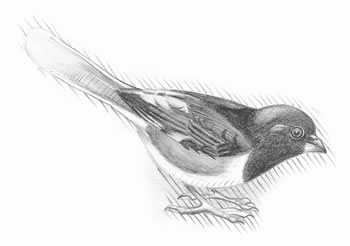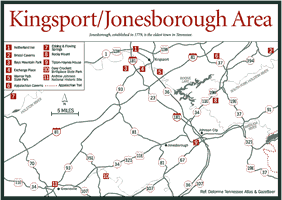

[Fig. 25(3)] This 3,000-acre nature preserve atop Bays Mountain, which is owned and operated by the city of Kingsport, offers visitors a variety of outdoor experiences. There are animals exhibited in their natural habitat, including bobcats (Felis rufus,) river otters (Lutra canadensis,) beavers (Castor canadensis), gray wolves (Canis lupus), and gray and red foxes (Urocyon cinereoargenteus and Vulpes vulpes). There is also a 44-acre lake, a planetarium and observatory, an interpretive nature center, a saltwater tidal pool and marine aquarium, a farmstead museum, and 25 miles of interconnecting trails that permit walks as short as a few hundred yards up to 4.8 miles. By following all of the trails, a day-long hike is possible.
The park features a wide range of activities that include programs about various kinds of wildlife, such as reptiles, amphibians, and birds; stargazing; spring wildflower walks; barge cruises and canoe tours on the lake; and moonlight hikes. Special educational programs are also arranged for students from schools in the area.
[Fig. 25(1)] The historic Netherland Inn on the banks of the Holston River at Kingsport was built in 1802 by William King as a boat yard from which to ship his salt. It was sold in 1818 at a sheriff's sale to Richard Netherland, who immediately established the beautiful three-story building as an inn and tavern on the Old Stage Road. Since the road was the main route to western Kentucky and middle Tennessee, Netherland obtained a contract with the stage line to provide the services of his inn to stagecoaches, mail coaches, ox carts, and river traffic. Presidents Andrew Jackson, Andrew Johnson, and James K. Polk visited the Netherland Inn.
The inn was sold in 1906 and became a boarding house, then in 1968 it was
purchased by the Netherland Inn Association to be preserved as a historic house
museum.

[Fig. 25(4)] This 1816 frontier homestead was once the center of a 2,000-acre plantation that also served as a stop on the Great Stage Road. Its name was acquired because it was a place where travelers could exchange Virginia currency for Tennessee currency, or vice versa, and where tired horses could be replaced by fresh ones.
The main building, as well as several others, has been restored by the Netherland Inn Association, which received the buildings, 7.5 acres of land, and a generous amount of money as a gift from the heirs of one of the previous owners. The homestead is listed on the National Register of Historic Places.